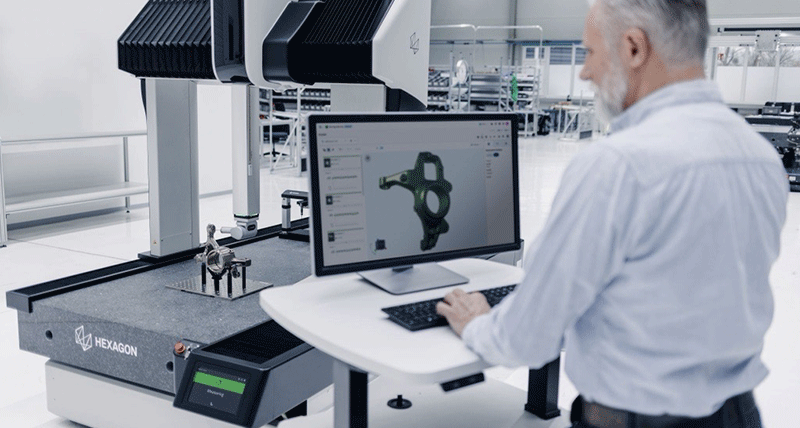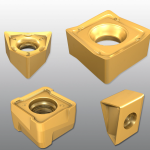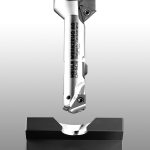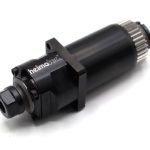Hexagon launches Maestro, the ‘next-gen’ coordinate measuring machine
Hexagon launches Maestro, the ‘next-gen’ coordinate measuring machine
Transforming quality inspection with high-speed, connected measurement workflows, Hexagon's Manufacturing Intelligence division has launched the Maestro, an all-new, next-generation coordinate measuring machine (CMM) engineered from the ground up to meet the rising productivity demands of modern manufacturing.

Transforming quality inspection with high-speed, connected measurement workflows, Hexagon's Manufacturing Intelligence division has launched the Maestro, an all-new, next-generation coordinate measuring machine (CMM) engineered from the ground up to meet the rising productivity demands of modern manufacturing.
The company said that the Maestro was designed to combat global skills shortages and increasing quality requirements.
Expanding on Hexagon's heritage of metrology excellence, Maestro is built upon four principles: to be fast, easy to use, connected and scalable. Its digital-first architecture offers the industry rapid measurement routines, an intuitive user experience and seamless data integration. With modular software and hardware, it is designed to scale with evolving production needs, making it ideal for aerospace, automotive, and high-precision manufacturing environments where there is a high demand for accuracy to deliver safety, compliance, and performance.
Building on Hexagon's extensive global metrology expertise, Maestro features a newly-developed digital architecture, incorporating digital sensors, a single cable system, and a completely new controller with brand new firmware. Together, these new capabilities increase throughput, streamline the complete measurement operation, and ensure future-ready connectivity for modern production environments.
Benefits, include:
- Precision at speed: Maestro's redesigned mechanical structure, single-cable digital platform, and advanced sensors enable fast measurement with sub-micron tolerances that satisfy stringent industry standards. Customers gain the confidence of repeatable, certified measurements for critical quality control. This provides reliable results, even for complex shapes and the most demanding applications.
- Breakthrough speed: Maestro delivers industry-leading throughput through high-speed motion while maintaining exceptional precision. Synchronized axis movements, rapid calibration, and cloud-connected software significantly accelerate set-up, programming, execution, and reporting
- Simpler use and programming: Maestro remasters quality inspection by simplifying CMM programming and streamlining workflows. An intuitive user interface, combined with next-generation cloud-native metrology apps powered by Hexagon's Nexus platform, enable both expert metrologists and less-specialised staff to generate repeatable, standard-compliant measurements effortlessly – without the need for coding.
- End-to-end connectivity: Designed as an Industrial Internet of Things (IIoT) native measuring device, Maestro integrates into Hexagon's Nexus ecosystem, sharing real-time data across design, production, and quality teams, driving data-driven decision-making and improving overall equipment effectiveness (OEE). Near-line or in-line integration with automation systems is seamless.
- Scalable platform: With a modular design and a robust roadmap for future upgrades, Maestro is built for scalability. Manufacturers can easily update software, sensors, and additional capabilities over time, ensuring that their investment remains future-proof and continuously supports evolving production needs.
"Manufacturers told us they needed a next-generation system that tackles rising quality demands and skills shortages," said Jörg Deller, General Manager Stationary Metrology devices at Hexagon. "By rethinking our hardware and software from the ground up, rather than iterating on existing systems, we've had the freedom to create a high-accuracy inspection solution that is so intuitive that anyone from expert to new hires become significantly more productive. Meeting the needs of industry head-on, Maestro's digital backbone also makes it straightforward to integrate into modern connected factories, so stakeholders can improve quality quickly and definitively."
Pilot users report dramatic productivity gains and reduced inspection lead times, helping to avoid production bottlenecks and to keep pace with fast-changing customer requirements. Customers have tested various sensors, ranging from high-speed laser scanning to tactile probes, with consistently strong results in both R&D and production applications.
Hexagon's software tools and services such as PC-DMIS and the Metrology Mentor, Metrology Asset Manager, and Metrology Reporting Nexus Apps were developed in tandem with MAESTRO to create an integrated system that significantly boosts productivity from part loading to analysis, compared to isolated component solutions. The end goal is to deliver ease of use and fast workflows, from programming, execution and usage, to reporting and collaboration with colleagues in design and manufacturing.
Maestro will be offered initially in multiple sizes and configurations, each engineered for automated multi-sensor workflows utilizing tactile probes and laser scanning probes from a new "digital rack" that tracks occupancy status, sensor supply health and status that can be accessed on-device and throughout the desktop and cloud-native apps. Additional future-ready models and enhancements will follow, all based on a single, coherent platform.





